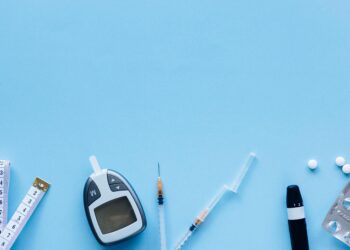The lore of medicine is the lone physician, but in reality medicine has always been a healthcare system.
Traditionally we had the community physician with the small town pharmacist and dentist working in collaboration with community leaders and pastors to keep you in good health. Today we have different healthcare systems of interaction.
Today we have a healthcare system rife with inefficiencies and extraneous, administrative costs, pushing patients and physicians alike through a byzantine system like cogs in a wheel.
Tomorrow we will have a decentralized healthcare system, defined by interactions initiated by data sets and technology platforms. But in some ways, the future is now.
It is no secret that many see technology as the savior of healthcare. When we discuss cutting unnecessary costs or improving access to care, we turn to health insurance innovations. We have no shortage of innovators crafting new apps or digital services – slicing some technological interface into a business model that eliminates a perceived inefficiency or cost, echoing smart health insurance strategies.
Venture capitalist Christina Farr wrote, “every digital health[care] startup is a clinic now”, when discussing the rise of virtual provider groups and unicorn startups that digitize the healthcare experience.
The healthcare system is changing, faster than we think, because we are accepting technology into healthcare at ever faster rates. Healthcare is in the patient interactions, some subtle and some overt, some digital and some in-person, all contributing to the overall system of patient care.
We are no longer in waiting rooms waiting to see the physician. We are in waiting rooms reading about our medical conditions online to see whether what we read corresponds to what the physician will say.
These days, it seems only a slight stretch to claim ‘the app is now your doctor’. But the march to the future is not so straightforward. The interactions may initially seem to change due to technology trends, but in reality they change based on our shifting perceptions of trust, a topic often discussed in best healthcare policy podcasts.
We trust healthcare technology. Therefore, the healthcare system becomes more technological. The difference may appear slight but is quite paramount.
For now it seems trust and technology go hand and hand. And through that relationship we see the meteoric rise in virtual provider systems and digital healthcare apps. Eventually healthcare will decentralize into technological platforms, becoming more reliant on digital tools of automation to administer healthcare – becoming more efficient.
Most see this as a good thing. Technology favors efficiency. People also favor efficiency. But efficiency means two different things for technology and society. People like efficient healthcare, but they also like to indulge in unhealthily meals or a drink from time to time. Technology is unrelenting, optimizing for greater and greater efficiency. There is no room to indulge, as touted by healthcare policy issues.
But when given a choice, most of us would rather risk diabetes in the long term than than forgo desert at a wedding. This is human nature, an indelible part of who we are. This is also where patient trust and technology separate.
When healthcare technology encroaches into patient autonomy, patients no longer trust it. And if patients do not trust healthcare technology, then they will not interact with it, and it will no longer be part of a healthcare system. We favor efficiency, but not at the cost of autonomy.
Patient autonomy is something of a rate-limiting step for technological efficiency in healthcare, and will come to play a bigger role as healthcare becomes more technological – and more efficient.
Trust and technology will then disconnect and will no longer be seen as complementary. Currently, most healthcare technologies implicitly assume patients will trust digital healthcare platforms. And for now most patients oblige. But only as long as the technology does not conflict with their free will, their ability to choose – as no amount of digitization will supplant autonomy.
Savvy innovators would be wise to begin developing technology platforms that correlate technology with autonomy, forgoing the implicit assumption of trust on the part of patients.
They should instead identify models of efficiency that balance technology and autonomy to earn patient trust – balancing digitization with individual choice, or efficiency with autonomy.
Those who recognize this burgeoning trend sooner than later will have a competitive advantage for patients who are leery of technology.
These are also the same patients who are a high risk of medical complications and high cost of care, who are sought after by those integrating value based reimbursement models. These patients value autonomy over technology – and are the harbingers of the coming divide between trust and technology.
In the future, ‘the app will be your doctor’, so long as the app does not conflict with your free will.

















Great insight here. Although it sounds counterintuitive, less restrictive alternatives can be more efficient!